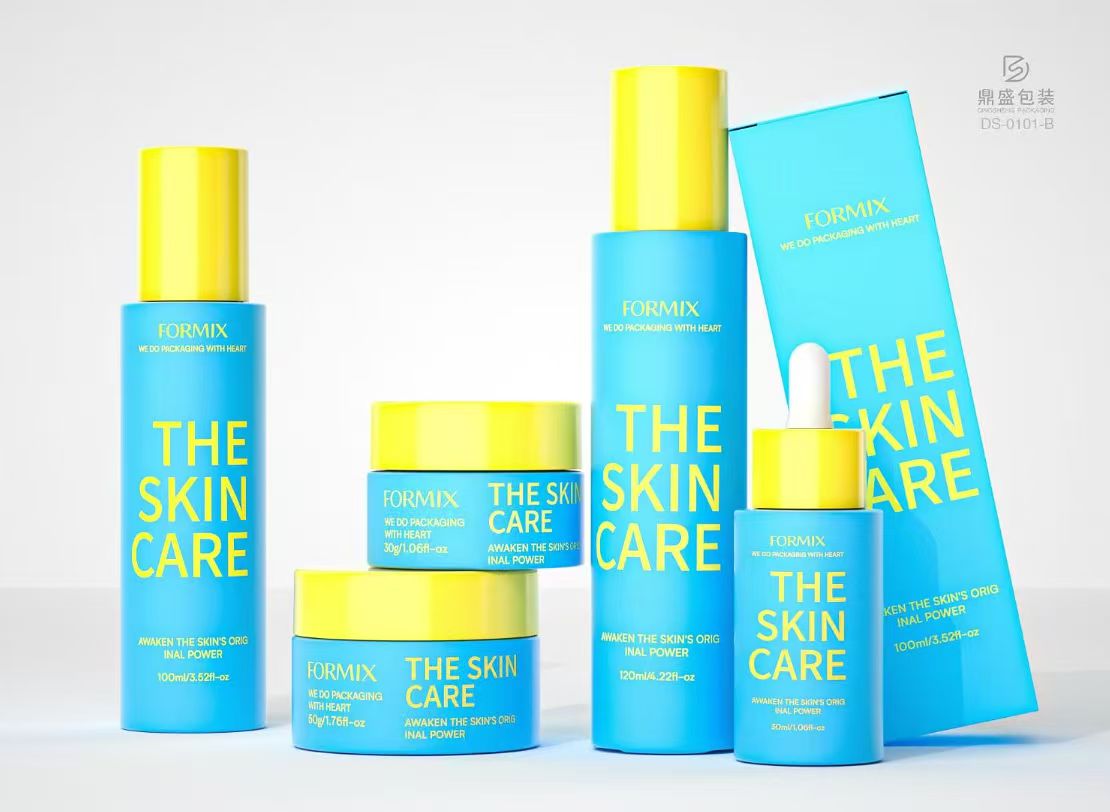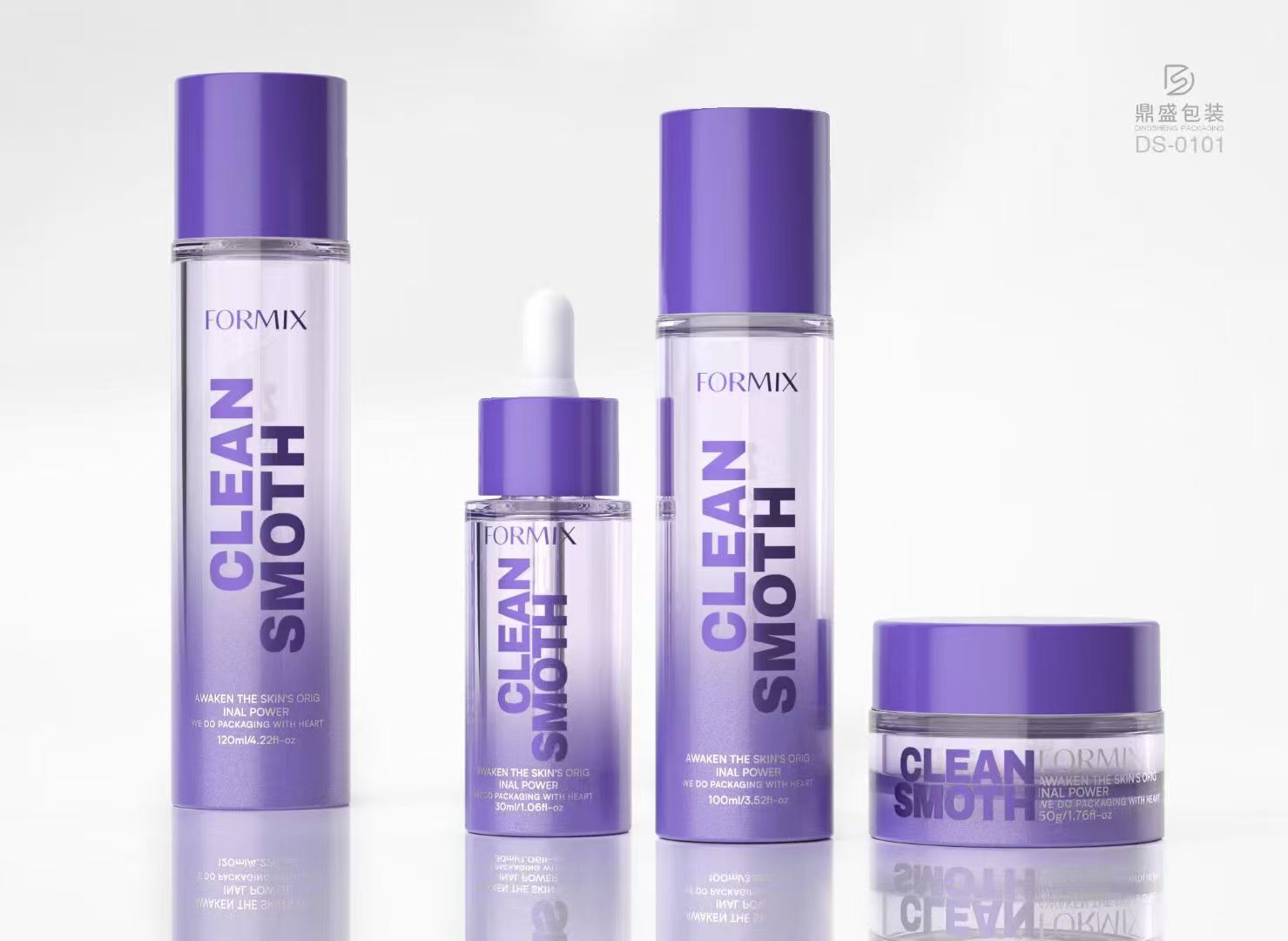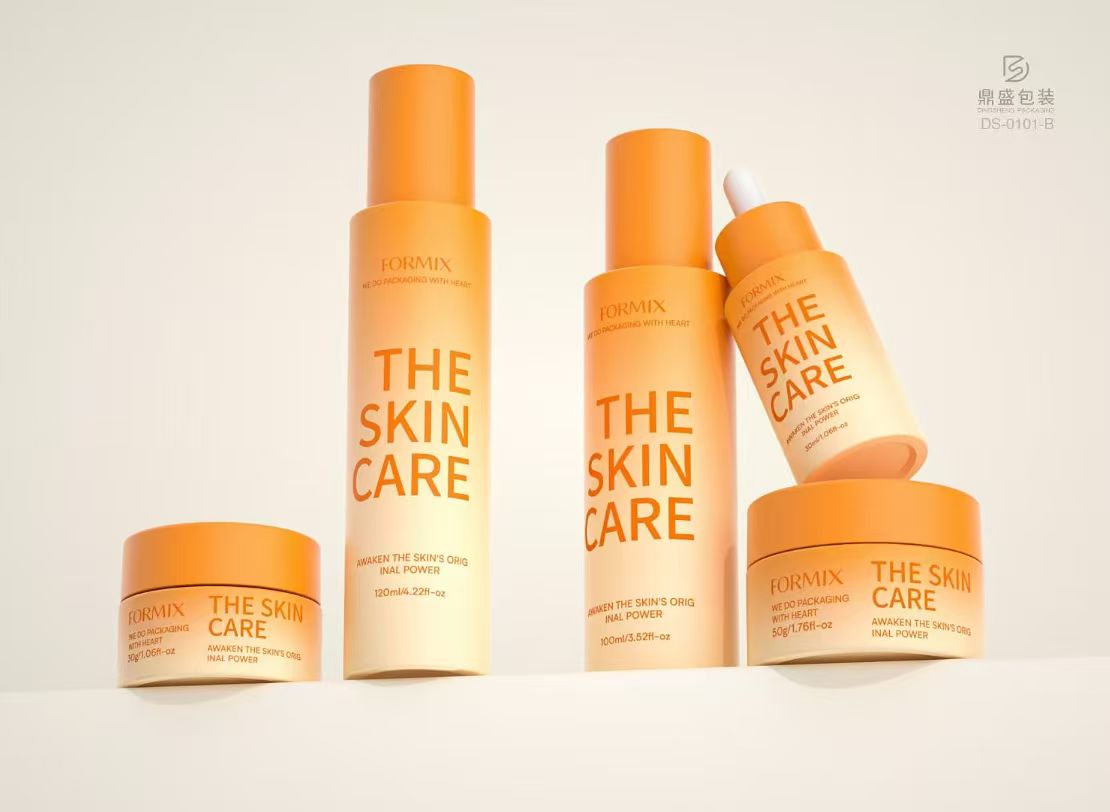A Comparison Between Cosmetic Glass Bottles and Plastic Bottles
Sep 05, 2025
Introduction: Why Cosmetic Glass Bottles Remain a Benchmark in Beauty Packaging
In today’s highly competitive cosmetics industry, packaging plays an equally important role as the formulation itself. Consumers are not only looking for products that deliver results but also packaging that reflects quality, sustainability, and brand identity. Cosmetic glass bottles have been a symbol of luxury and durability for decades, while plastic bottles offer lightweight practicality and cost efficiency. For many brands, the choice between glass and plastic is not just a matter of appearance—it directly affects product safety, sustainability, consumer perception, and logistics.
At Dingsheng (Guangdong) Glass Technology Co., Ltd., we specialize in skincare glass packaging and perfume glass bottles, offering brands worldwide a reliable partner for premium cosmetic packaging. With over ten years of experience, ISO-9001 certification, and advanced production facilities, we are committed to helping beauty brands understand the differences between glass and plastic, so they can make the right decision for their packaging strategy.
This article provides an in-depth comparison of cosmetic glass bottles versus plastic bottles, covering their pros and cons, sustainability aspects, brand positioning impact, and practical considerations.
Key Material Differences Between Glass and Plastic Bottles
Cosmetic Glass Bottles – Timeless Elegance and Durability
Glass bottles are made from natural raw materials such as silica sand, soda ash, and limestone. The result is a non-porous, inert material that does not react with cosmetic formulations. This makes glass particularly suitable for sensitive products such as serums, essential oils, and high-value skincare creams.
Non-reactive: Glass does not interact with ingredients, preserving the purity and effectiveness of formulations.
Luxury perception: Heavier in weight, glass conveys a sense of premium quality.
Sustainability: Glass is 100% recyclable without losing its quality.
Plastic Bottles – Lightweight Practicality and Cost Efficiency
Plastic bottles are commonly made from PET, PP, or HDPE, which are lightweight, moldable, and resistant to breakage. They are widely used for mass-market products, travel-friendly packaging, and categories where affordability is key.
Lightweight: Easier to transport, reducing shipping costs.
Flexibility: Can be molded into complex shapes at lower cost.
Durability: Plastic is resistant to breakage, making it safe for everyday use.
Pros and Cons of Cosmetic Glass Bottles vs. Plastic Bottles
Advantages of Glass Bottles
Superior Barrier Properties – Glass protects against oxygen and moisture penetration, ensuring product stability.
Eco-Friendly Choice – Recyclable endlessly without losing quality.
Premium Branding – Glass conveys luxury, often used for high-end cosmetics and perfumes.
Chemical Resistance – Ideal for natural and organic formulations sensitive to contamination.
Advantages of Plastic Bottles
Lightweight & Portable – Perfect for travel kits and everyday use.
Cost-Effective – Generally cheaper in large-scale production.
Shatterproof – Reduces risks of breakage in shipping and consumer handling.
Versatile Shapes & Colors – Easily molded into modern, creative designs.
Downsides of Glass Bottles
Heavier, increasing transportation costs.
Fragile, requiring careful handling and protective packaging.
Higher production costs compared to plastic.
Downsides of Plastic Bottles
Perceived as “cheap” compared to glass.
Environmental concerns due to lower recycling rates.
Risk of chemical leaching in long-term storage.
Why Brands Choose Cosmetic Glass Bottles Over Plastic
Many beauty and skincare brands continue to prioritize cosmetic glass bottles despite their higher cost. The decision often comes down to branding, sustainability goals, and consumer expectations.
Luxury Branding – Glass enhances the perceived value of a product, particularly in premium skincare and fragrance lines.
Eco-Conscious Image – Consumers increasingly prefer recyclable packaging.
Product Integrity – Sensitive serums, natural oils, and organic formulations stay stable longer in glass containers.
For example, niche skincare brands launching anti-aging serums or essential oils almost exclusively choose glass bottles with droppers or pumps, as customers associate glass with purity and authenticity.
When Plastic Bottles are the Smarter Choice
While glass dominates premium categories, plastic remains the material of choice in many situations:
Mass-market affordability – Plastic bottles help keep retail prices competitive.
Travel and convenience – Lightweight and shatterproof packaging suits on-the-go lifestyles.
Large-volume products – Plastic is often used for lotions, body washes, and shampoos.
Sustainability Considerations
Glass Sustainability
Glass is endlessly recyclable.
Maintains material integrity after multiple recycling cycles.
Increasingly supported by consumer demand for eco-friendly packaging.
Plastic Sustainability Challenges
Although recyclable, plastic recycling rates remain low worldwide.
Microplastic pollution is a growing concern.
Some brands are transitioning to bioplastics or recycled PET (rPET) to improve eco-credentials.
Case Study: Dingsheng’s Contribution to Glass Packaging Innovation
At Dingsheng (Guangdong) Glass Technology Co., Ltd., we have been producing high-quality cosmetic glass bottles for over a decade. With a 30,000-square-meter production facility, advanced injection molding and blow molding equipment, and post-process treatments such as spraying, hot stamping, and screen printing, we deliver both functionality and aesthetics.
ISO-9001 Certification ensures strict quality management.
Customization services allow brands to choose from various bottle shapes, neck sizes, and dispensing options.
Global clientele benefits from our balance of quality and competitive pricing.
By partnering with Dingsheng, brands can confidently switch from plastic to glass packaging, aligning their sustainability efforts with consumer expectations while maintaining cost efficiency.
Conclusion: Finding the Balance Between Glass and Plastic
The debate between cosmetic glass bottles and plastic bottles has no one-size-fits-all solution. Glass remains the ultimate choice for luxury, sustainability, and sensitive formulations, while plastic excels in affordability, portability, and convenience. For many beauty brands, the answer lies in using a combination of both materials across product lines—premium serums in glass, and everyday lotions in plastic.
At Dingsheng Glass Technology, we guide brands through this decision-making process, offering expertise, innovative designs, and manufacturing excellence to ensure that packaging not only protects the product but also enhances the overall consumer experience.



 Network Supported
Network Supported